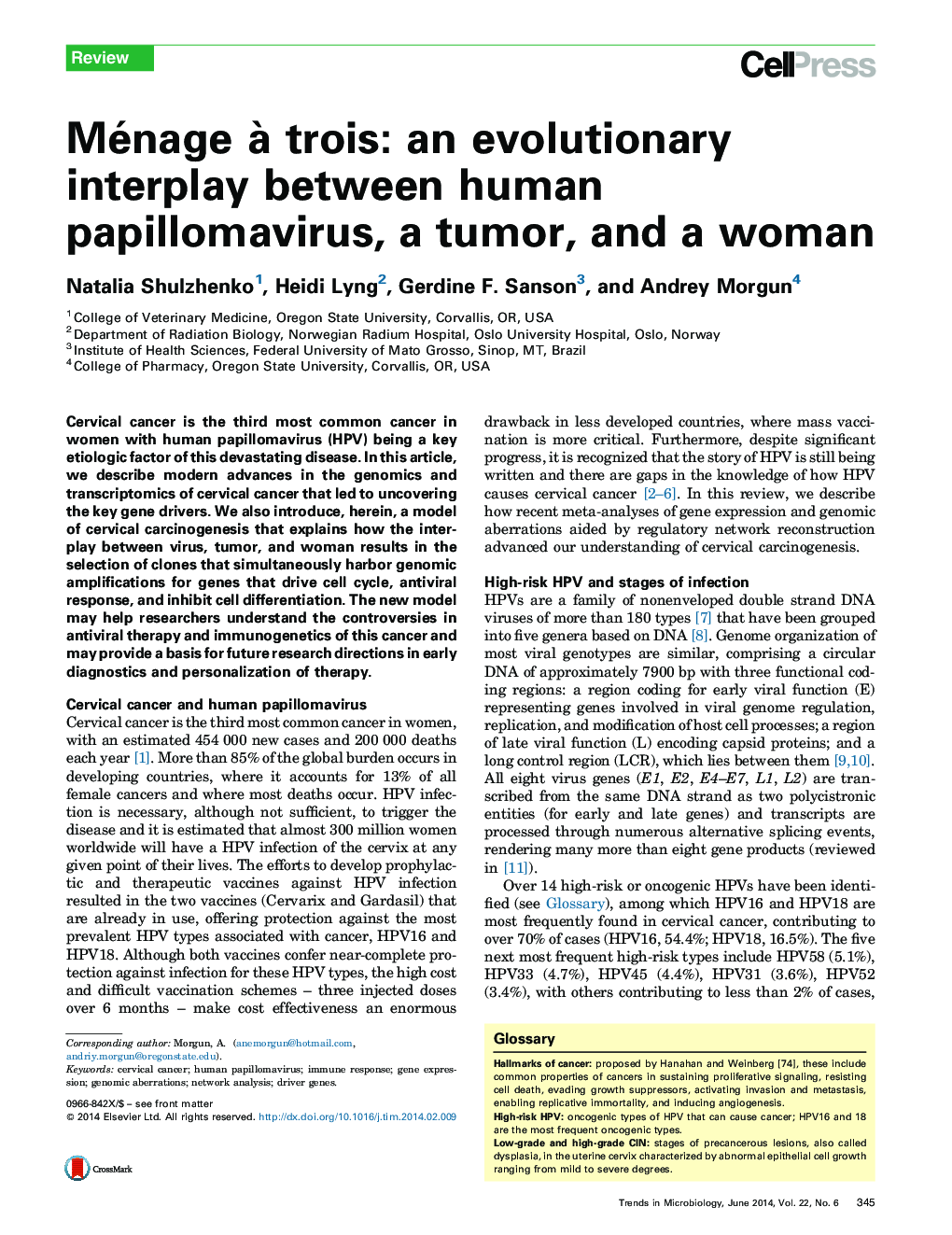| Article ID | Journal | Published Year | Pages | File Type |
|---|---|---|---|---|
| 3421782 | Trends in Microbiology | 2014 | 9 Pages |
•Chromosomal gains harbor key gene drivers of cervical carcinogenesis.•Key drivers enhance cell cycle, antiviral response, and inhibit cell differentiation.•Increased antiviral response contributes to decline of episomal human papillomavirus (HPV).•Decline of episomal HPV leads to release of integrated viral oncogenes (E6/E7).
Cervical cancer is the third most common cancer in women with human papillomavirus (HPV) being a key etiologic factor of this devastating disease. In this article, we describe modern advances in the genomics and transcriptomics of cervical cancer that led to uncovering the key gene drivers. We also introduce, herein, a model of cervical carcinogenesis that explains how the interplay between virus, tumor, and woman results in the selection of clones that simultaneously harbor genomic amplifications for genes that drive cell cycle, antiviral response, and inhibit cell differentiation. The new model may help researchers understand the controversies in antiviral therapy and immunogenetics of this cancer and may provide a basis for future research directions in early diagnostics and personalization of therapy.
